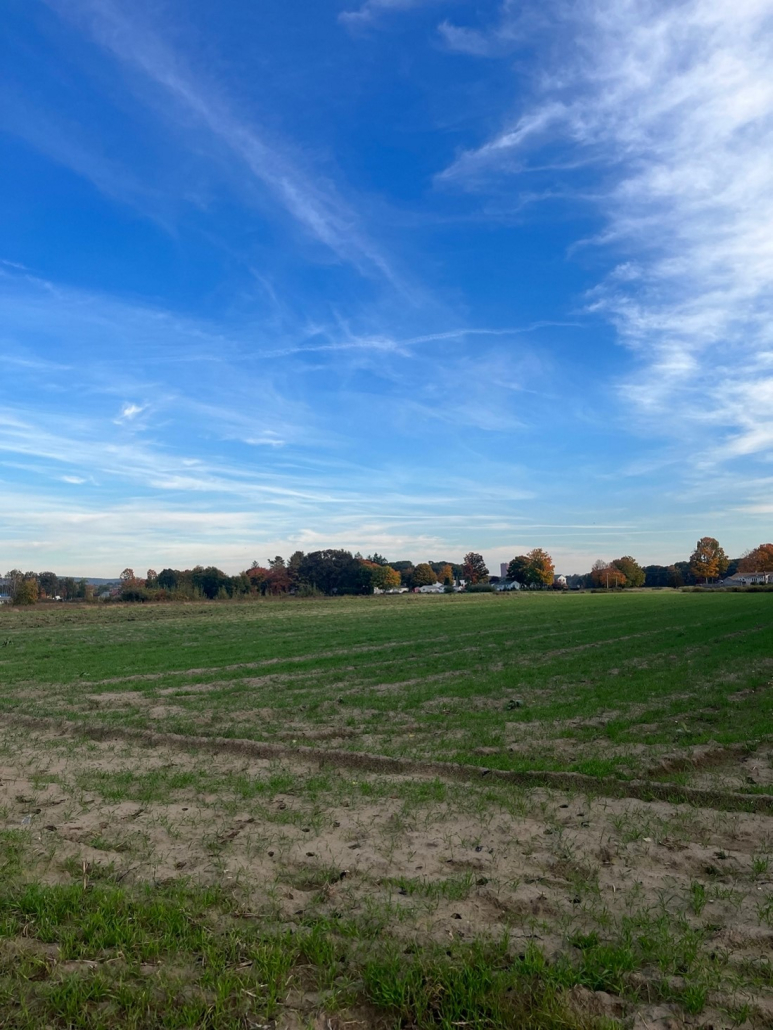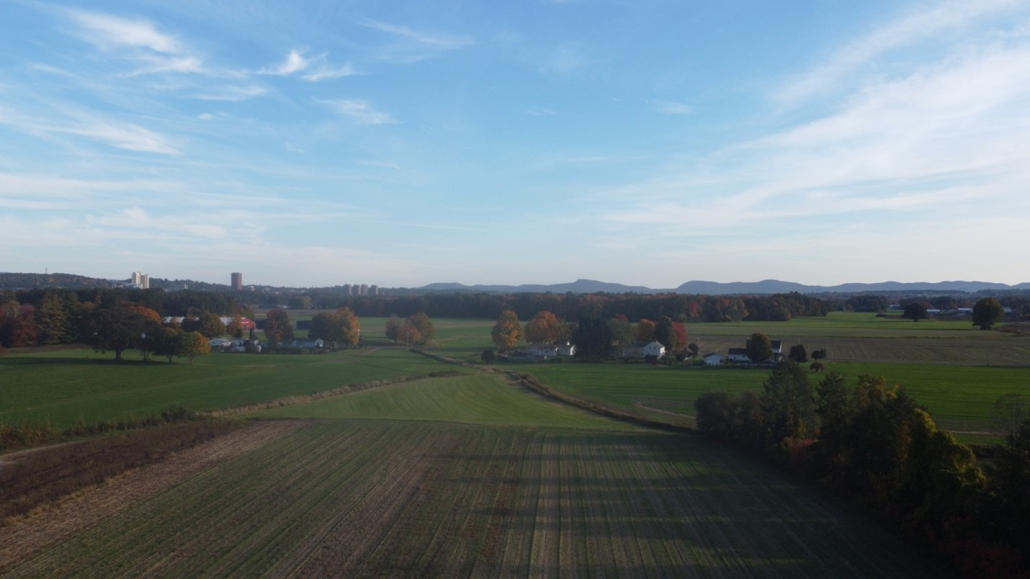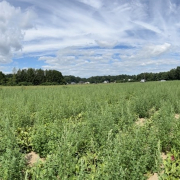Case Study: Joe Czajkowski Farm
The Joe Czajkowski Farm project will be a commercial agrivoltaic array in Hadley, Massachusetts, set to be completed in time for the 2023 growing season. The project was developed through a partnership with Joe and Hyperion Systems, Amherst, Massachusetts, which has a long history in agrivoltaics. The farm’s dual-use array will serve as an excellent example of a medium-scale solar site that works for both the farmer and the land.

Farm owner Joe Czajkowski is a third-generation Hadley farmer. He produces on more than 400 acres across the Pioneer Valley. The farm practices both organic and conventional farming, contributing to the local food system by providing produce to institutions and retail outlets, including UMass Amherst Dining Services, Springfield Public Schools, Trader Joe’s, Whole Foods, and numerous local restaurants. Czajkowski’s produce reaches Boston almost daily, and their squash noodles can be purchased up and down the East Coast.
Czajkowski has been growing on this specific parcel for over two decades, rotating a variety of crops, including beets, broccoli, tobacco, and corn silage, among others. While the parcel is used annually, it is not one of their most productive fields. The site is set back from the roadway, has an existing farm access road, and features screening trees from neighbors. Combined, these conditions make the site an ideal space for an agrivoltaic system.

The project will consist of a 450-kW DC solar array on 2.2 acres. Comprised of 850 modules, the array will utilize single-axis tracking. Modules will be 10 feet above the ground when the modules are horizontal. These system specifications meet the Massachusetts SMART Program guidelines for agrivoltaics. The rows will be spaced 26 feet post to post, allowing for equipment to make two or three passes between the post rows, depending on the farming activity. In the first year, Czajkowski intends to grow broccoli underneath the array. He will rotate crops in the second year and plans to grow zucchini squash.

The array is part of a UMass Amherst-led research project that will assess crop productivity, soil health, and microclimatic conditions. The project has been awarded funding by the U.S. Department of Energy’s Solar Energy Technology Office. Data will be gathered by scientists from UMass and American Farmland Trust.

As an innovative business owner and farmer, Czajkowski is looking forward to the research opportunity with his alma mater UMass Amherst. The dual-use array will increase the farm’s economic viability by diversifying operations. Czajkowski is excited about the opportunity to be an energy provider for his community.



